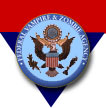

Historical Tales | News | Vampires | Zombies | Werewolves
Virtual Academy | Weapons | Links | Forum
 |
 |
Historical Tales | News | Vampires | Zombies | Werewolves Virtual Academy | Weapons | Links | Forum |
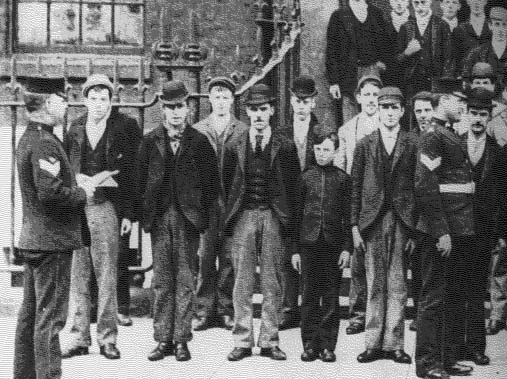 |
| A motley crew of FVZA recruits in New York City; 1905 |
The growing vampire population at the beginning of the 20th century forced the FVZA to begin organized recruitment in earnest. Recruitment centers were set up in major cities amid radio and poster campaigns appealing to a sense of patriotism, chivalry and honor. The burgeoning movie industry also pitched in at recruitment mixers, where stars danced with would-be agents. Successful movies like The Night Watch, featuring Tyrone Power as an FVZA agent, sent recruits flooding into FVZA offices.
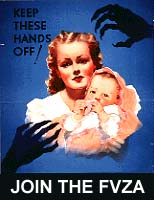 |
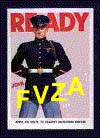 |
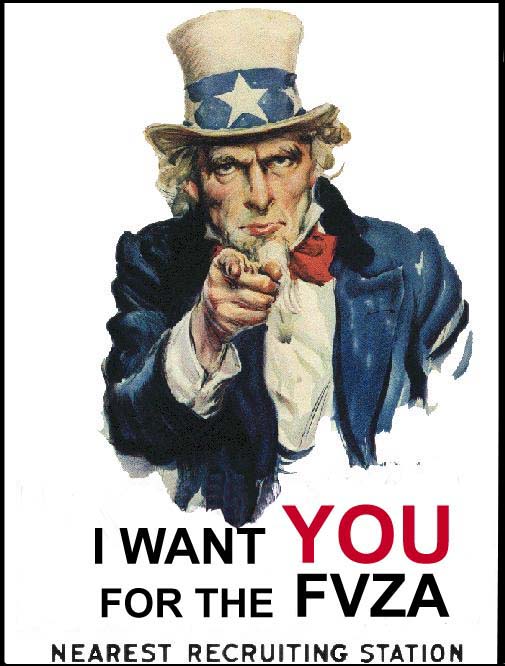 |
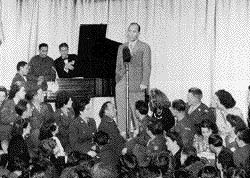 |
| Bing Crosby entertains an FVZA Officers Club. |
After the Agency went undercover in 1936, public recruiting was curtailed and future agents were culled from other branches of law enforcement. However, World War II proved to be a major setback for the Agency. With so many men needed for the war effort in Europe and the Pacific, the Agency fell to a subsistence level, relying on aging WWI veterans and men with physical handicaps and disabilities to take up the fight. As a result, thousands of GIs came home in 1945 to discover that vampire numbers had increased dramatically in their absence. New President Harry Truman acted quickly, creating a bill that gave ex-GIs a new house at low interest just for joining the FVZA. These "tract house agents" helped bolster the FVZA at a time when more and more young men were opting for careers in business.
The 1950 creation of the vampirism vaccine energized Agency recruitment efforts. "Finish the Job" became the theme of the new campaign, and the burgeoning medium of TV helped spread the word. FVZA-related TV shows, while not always accurate, helped bolster the Agency's profile. The diminishing numbers of vampires allowed the Agency to raise its enlistment standards, emphasizing quality over quantity. In 1964, ROTC programs began on college campuses, and in 1967, the Agency accepted its first class of female cadets. But by then, the end was near: the Agency was becoming a victim of its own success.
In its 106-year history, the Agency welcomed a diverse group of Americans to its ranks. Whether convict or valedictorian, senior citizen or teenager, they all shared one thing in common: unselfish bravery.